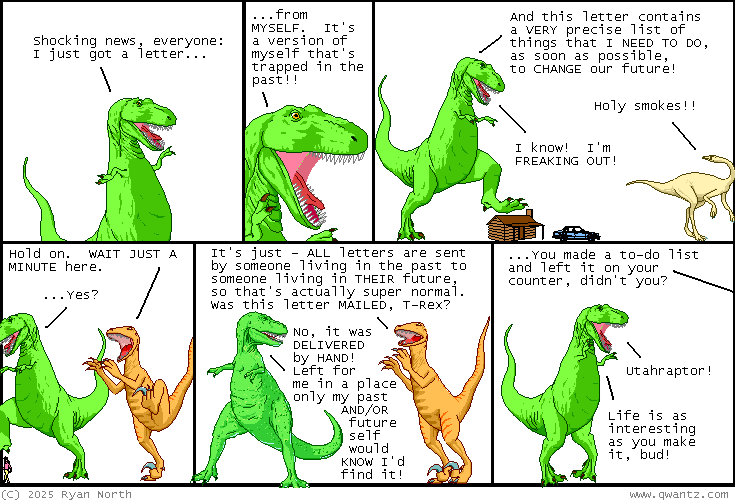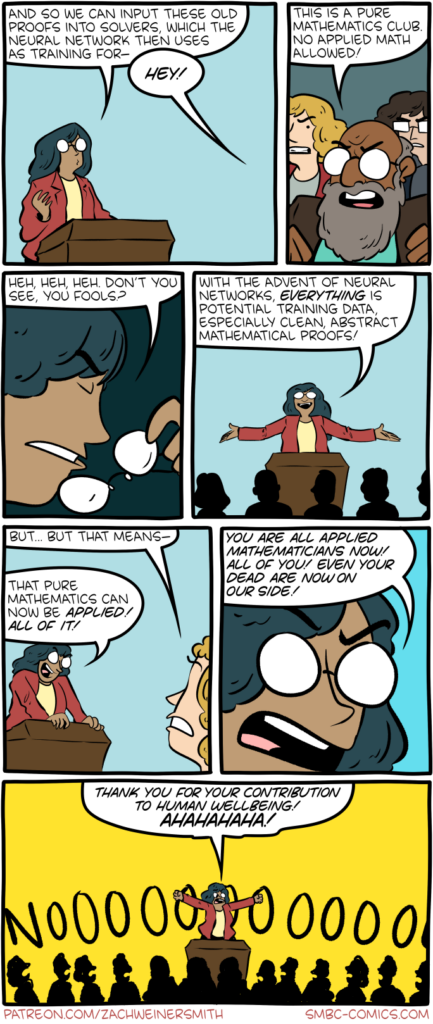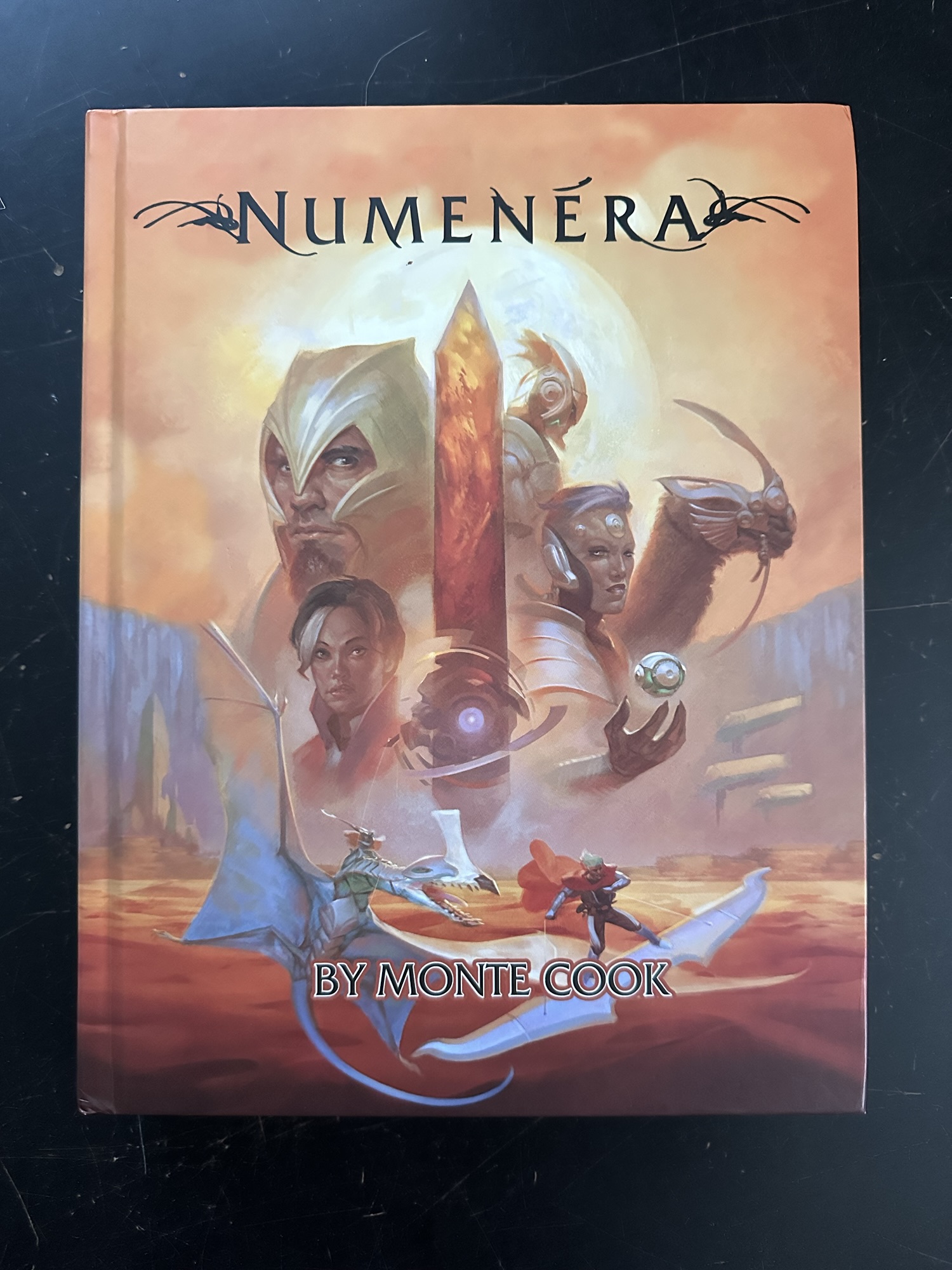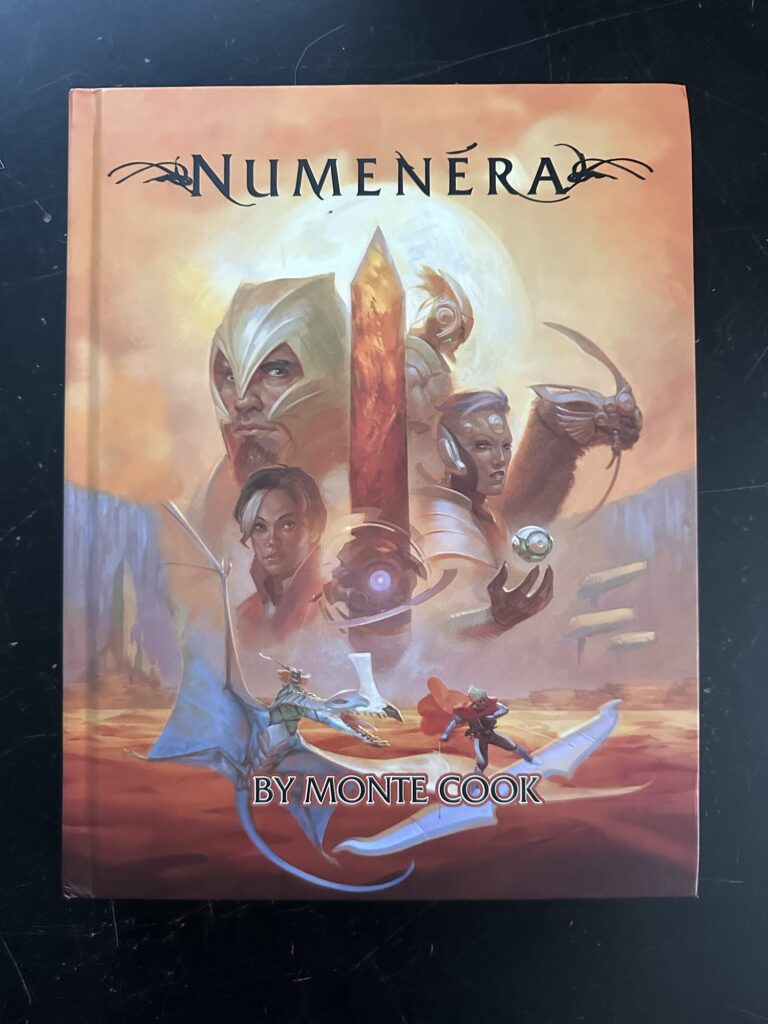I keep finding great videos about the Ultima series, one of my all time favourite video game franchises. I can’t remember if I already shared this one by Finntrovert but it’s so good it deserves being shared a second time anyway!
The Stochastic Game
Do you read Dinosaur Comics? Maybe you should! I love this kind of stuff!

Halaver Lightspear, an elf who has enough of your characters’ nonsense. A drawing by me for To Hunt A God! #Glorantha #TTRPG

“Applied Mathematics”: this recent one from the excellent SMBC genuinely made me laugh out loud!

Hahaha, so John Gruber, top US Apple pundit, is now saying that the DMA would “turn the EU into more of a technological backwater than it already is” 🤣

Some Notes on Numenera

Numenera is a science-fantasy game set in the far, far, far distant future, with some lightweight and somewhat original system, all written by Monte Cook.

On paper, it ticked a lot of boxes for stuff I’m interested in, so I brought it to my Friday group a few years ago. We played a dozen sessions or so and… well, we weren’t much into it and dropped it for something else. Still, there are a few cool things to take away from Numenera! Here are my notes!
Disclaimer: we played Numenera several years ago, using the game’s first edition. Since then Monte Cook published a new edition, called Numenera Discovery and Destiny. I have no idea what changed in that second edition.
I enjoyed this history of the Dungeon Keeper franchise by Reliable Rhubarb. I was a big fan of the first game and I got all nostalgic seeing it again!
Do you need a good fluffy boy in your timeline? Of course you need a good fluffy boy in your timeline! Here’s one!

Hello everyone! It’s a nice brisk and frosty morning here. The good fluffy boy is complaining that the sticks are too cold to pick up 😄


Oh wow, sad news this morning. RIP David Lynch. I still have fond memories of watching the first season of Twin Peaks on several-times-copied VHS tapes in high school, and sharing theories with all my friends…